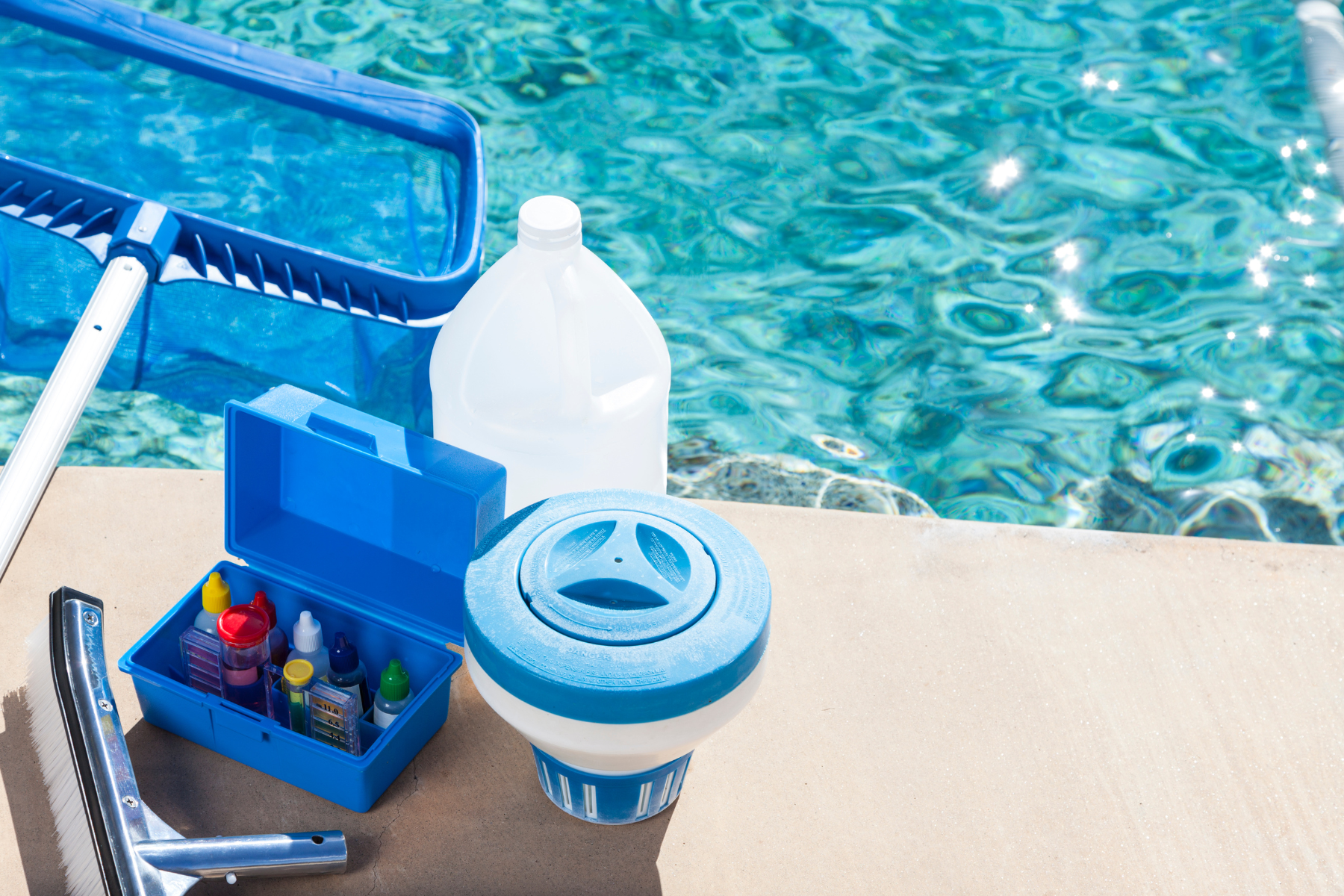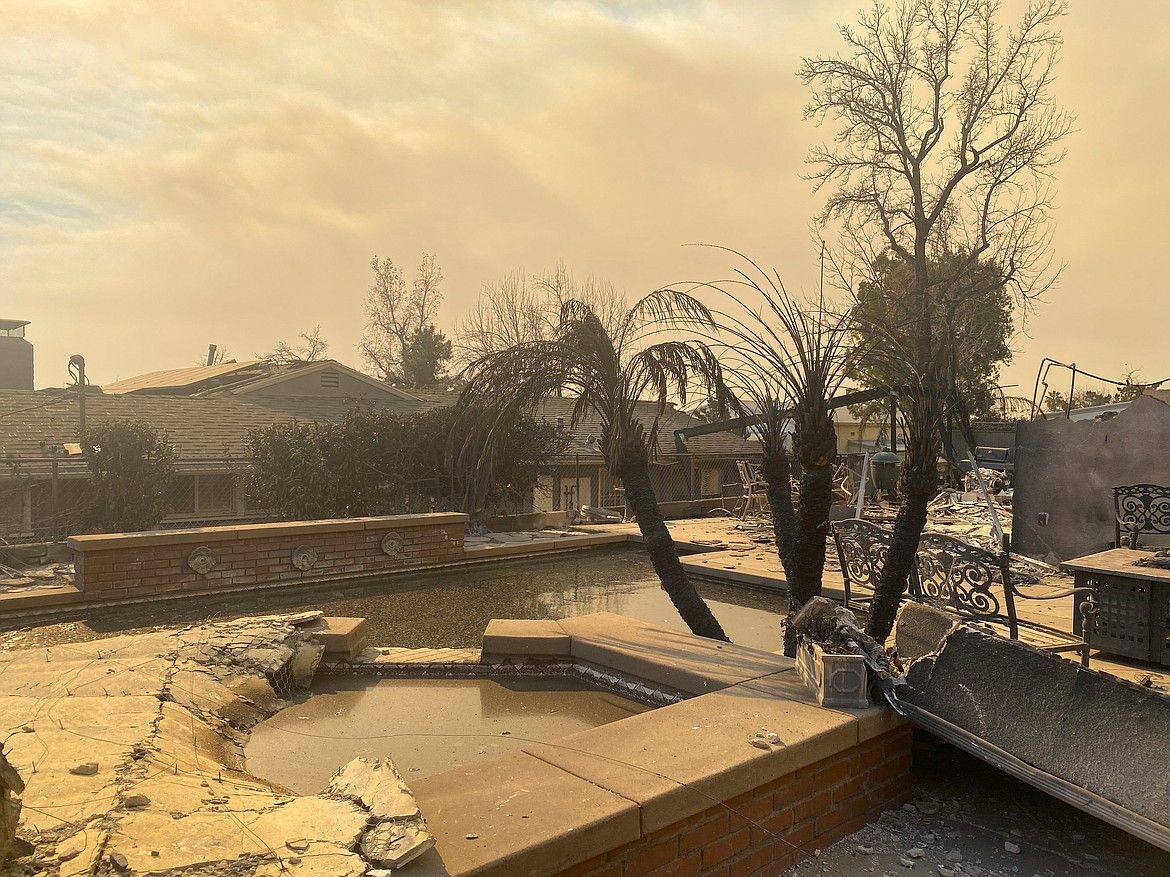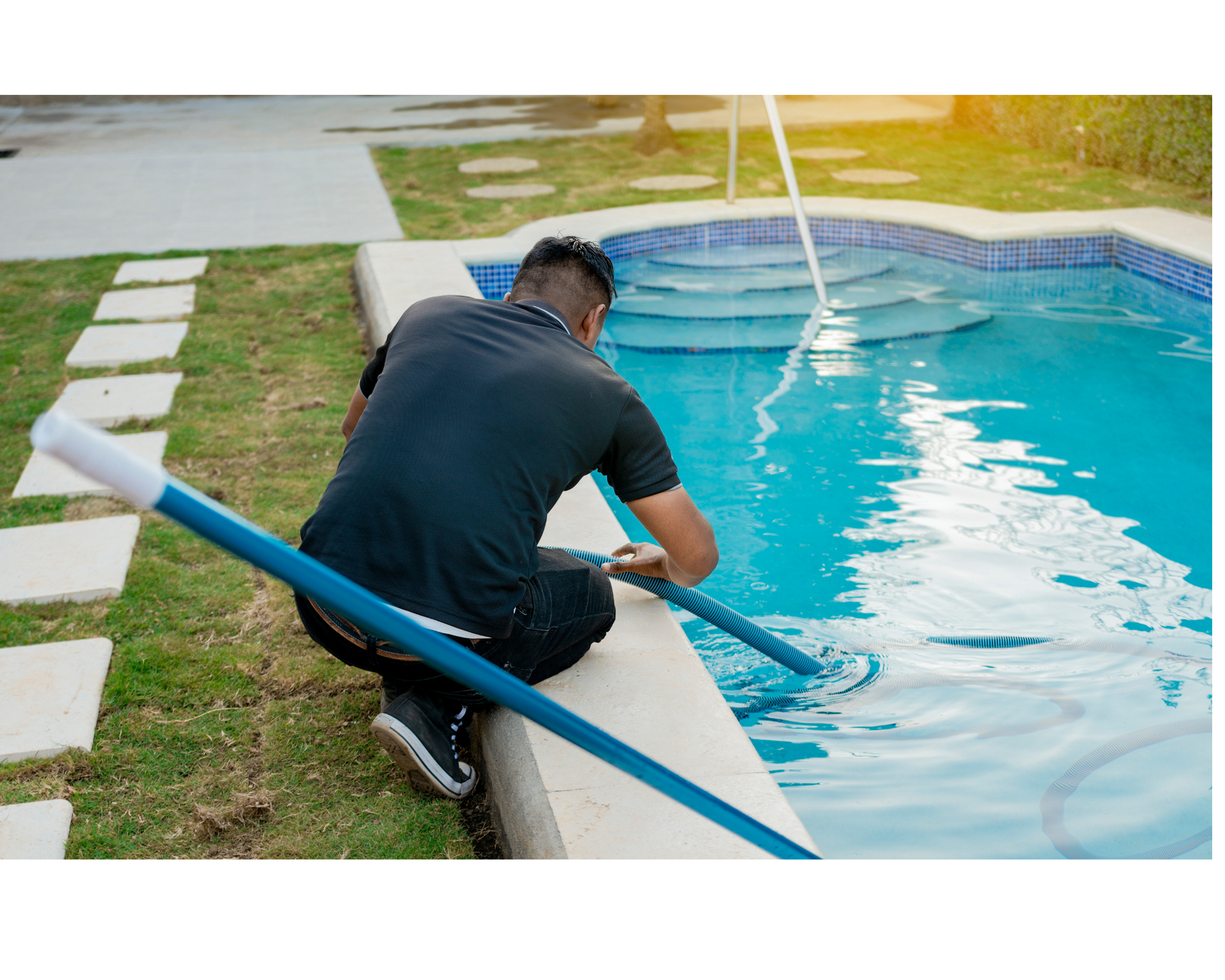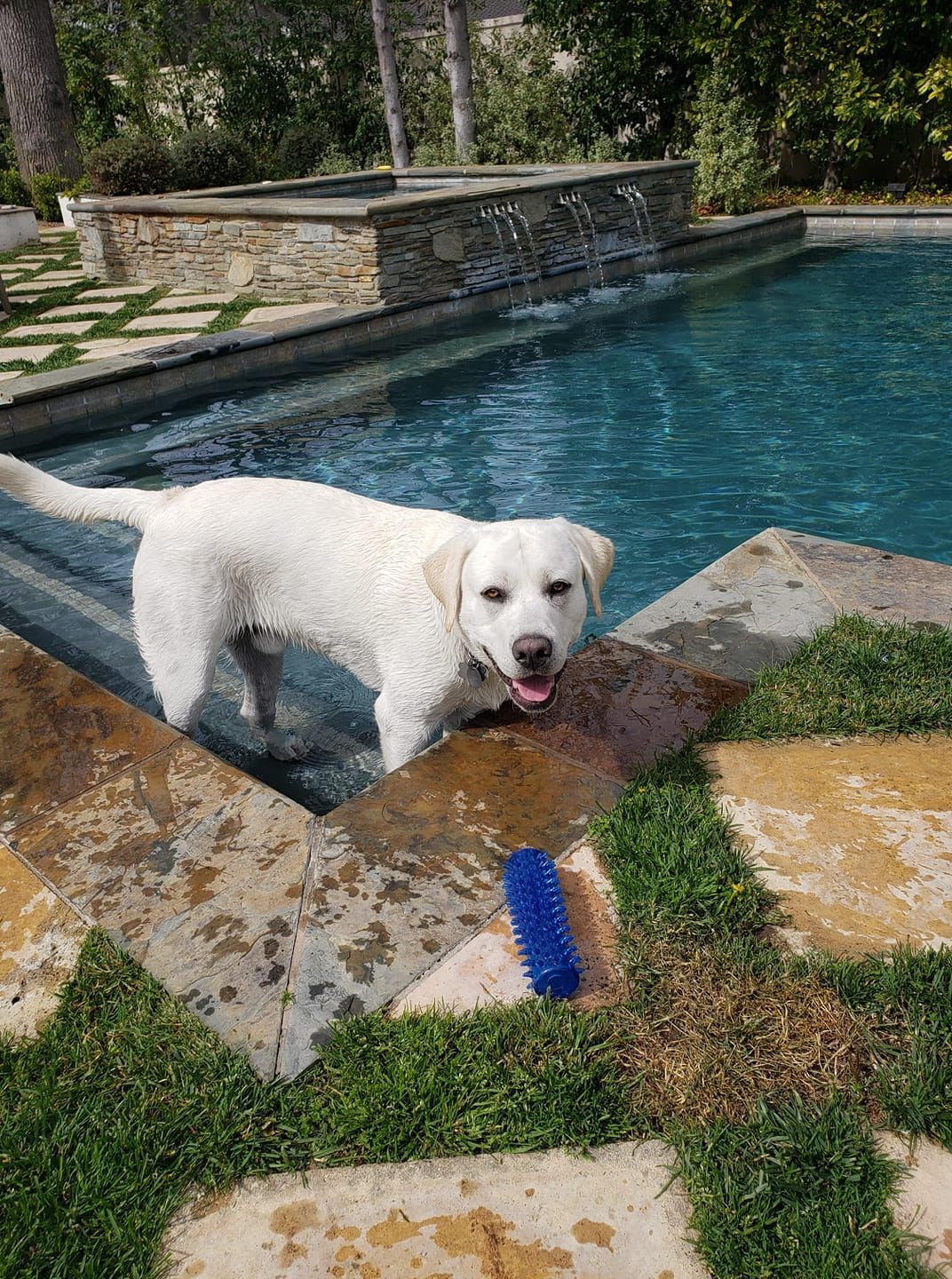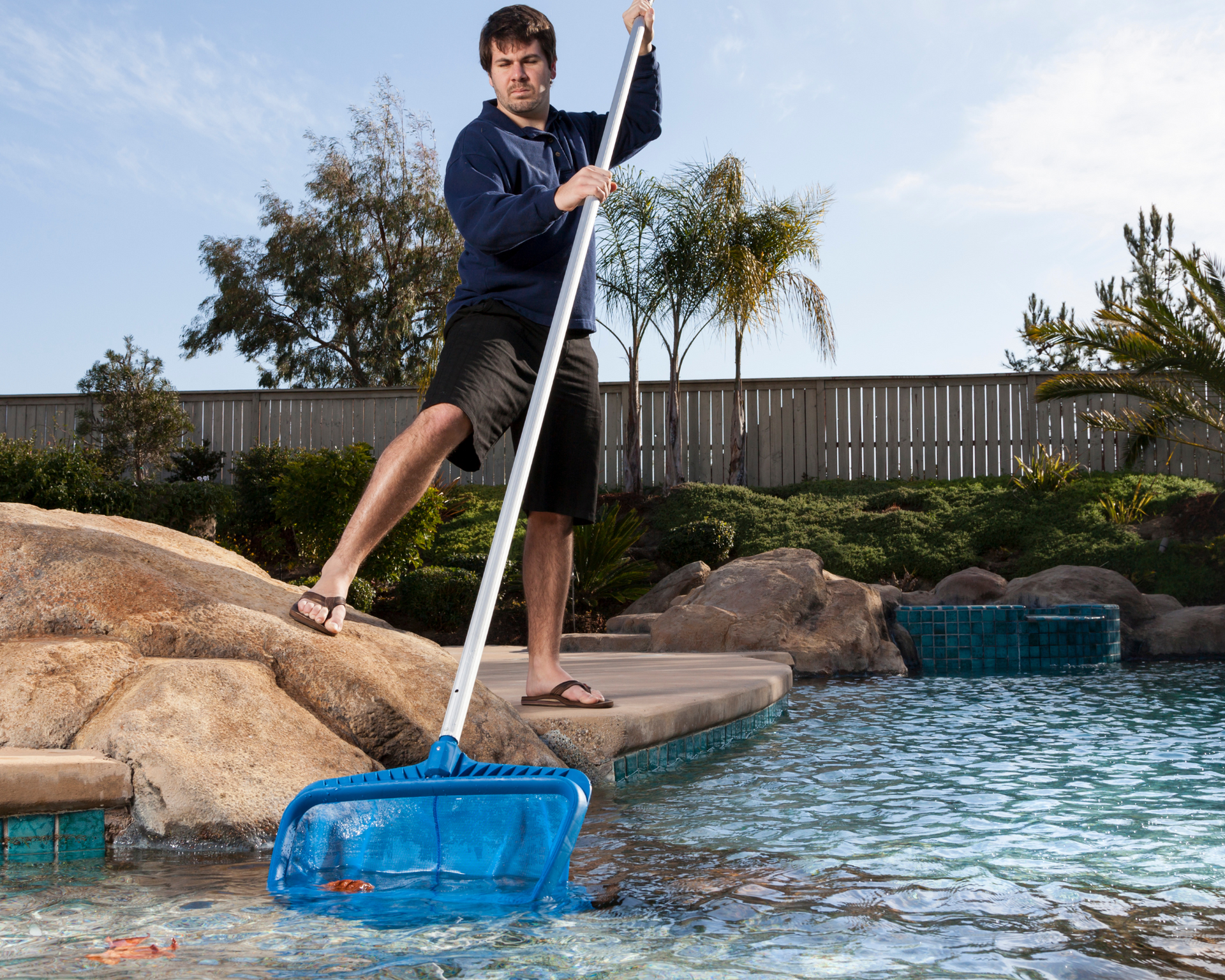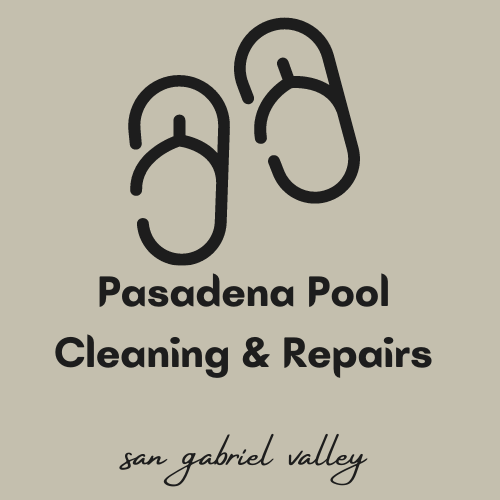What Does Pool Service Include?
A Comprehensive Overview of Essential Maintenance Tasks
When you invest your money in a pool, maintaining its cleanliness and safety becomes essential. Pool service typically includes regular cleaning, chemical balancing, equipment maintenance, and inspections to ensure optimal water quality.
Understanding what goes into these services can help you decide if hiring a professional is the right choice for you.
Many pool owners may wonder what specific tasks are involved in pool service. Services offered can range from skimming debris and vacuuming the pool floor to adding chemicals and checking for leaks. Each aspect of pool service plays a vital role in prolonging the life of your pool and enhancing your swimming experience.
By knowing what pool service includes, you can better appreciate the value that these professionals provide. Whether you're a new pool owner or looking to enhance your current maintenance routine, knowing the ins and outs of pool service is crucial.
Overview of Pool Service
Pool service plays a critical role in maintaining the cleanliness, safety, and functionality of a swimming pool. Regular maintenance prevents costly repairs and ensures a pleasant swimming experience.
Importance of Regular Maintenance
Regular pool maintenance is essential to keep the water clean and safe. This involves routine tasks such as checking chemical levels, cleaning the pool surfaces, and inspecting equipment.
Maintaining proper chemical balance helps prevent algae growth and ensures safe swimming conditions. Neglecting these tasks can lead to waterborne illnesses or damage to the pool structure.
Another critical aspect is the mechanical maintenance of pumps, filters, and heaters. Frequent inspections can identify minor issues before they become significant problems, prolonging the lifespan of the pool.
Types of Pool Services
Various types of pool services cater to different needs. Common services include basic cleaning, chemical balancing, and equipment maintenance.
Basic cleaning typically involves skimming debris, vacuuming the pool floor, and brushing the walls. These tasks help maintain clarity and reduce the risk of stains.
Chemical balancing focuses on adjusting pH levels, chlorine, and alkalinity to ensure safe swimming conditions. This can involve surprise tests and treatments based on environmental factors.
Equipment maintenance covers inspections and repairs of pumps, filters, and heaters. Regular servicing can prevent breakdowns and improve energy efficiency, ultimately saving on operating costs.
Cleaning and Sanitation
Maintaining a clean and sanitized pool is essential for health and enjoyment. The key components of pool cleaning include skimming and brushing, vacuuming, chemical balancing, shock treatments, and algae removal. Each aspect plays a vital role in keeping the pool safe and inviting.
Skimming and Brushing
Skimming involves using a net to remove debris, leaves, and bugs from the water’s surface. This step is vital as it prevents accumulation and potential water quality issues.
Brushing the walls and floor of the pool helps prevent dirt buildup and algae growth. A pool brush, typically with a long handle, ensures that all surfaces are scrubbed effectively.
Regular skimming and brushing should occur at least once a week. Doing so helps maintain clarity in the water and extends the life of the pool surface.
Vacuuming
Vacuuming removes dirt and debris that skimming may miss. Manual or automatic vacuums are commonly used, depending on pool size and owner preference.
Manual vacuums require more effort but allow for targeted cleaning. Automatic vacuums operate independently, making them convenient for regular maintenance.
Vacuuming should be done weekly or more frequently after heavy usage. This routine helps prevent the buildup of contaminants on the pool floor.
Chemical Balancing
Chemical balancing is critical for a safe swimming environment. Key parameters to monitor include pH, alkalinity, and chlorine levels.
- pH should typically be between 7.2 and 7.8 to prevent irritation and ensure sanitizer effectiveness.
- Total alkalinity acts as a buffer for pH levels, generally should range from 80 to 120 ppm.
- Chlorine is essential for sanitizing water; levels should be maintained between 1 to 3 ppm.
Regular testing and adjustments are necessary to keep the water balanced. This prevents algae growth and maintains crystal-clear water.
Shock Treatments
Shock treatments involve adding a high dose of chlorine or specialized chemicals to eliminate organic contaminants. This process is essential after heavy pool usage, rain, or algae blooms.
Typically, shock treatments are administered every 1 to 2 weeks or as needed. Proper application involves diluting the shock in water and adding it to the pool in the evening.
After shocking the pool, allow the chlorine levels to return to normal before swimming. This ensures safety and effectiveness in sanitizing the water.
Algae Removal
Algae growth can quickly turn a pool from inviting to unsafe. Different types of algae, including green, yellow, and black, require specific treatments.
Initial steps include brushing the affected areas and vacuuming any debris. A shock treatment often follows to kill off the algae.
Special algaecides may also be applied, tailored to the type of algae present. Regular maintenance, including chemical balancing and sanitation, helps prevent future growth.
Effective algae removal is crucial for maintaining a beautiful and healthy swimming environment. Persistent attention to these tasks ensures a safe and clean pool experience.
Pool Equipment Maintenance
Regular maintenance of pool equipment ensures optimal performance and longevity. Key areas of focus include inspecting pumps and filters, checking heater functions, analyzing automatic cleaner operations, and evaluating valves. Each component plays a crucial role in maintaining water quality and pool efficiency.
Pump and Filter Inspection
The pump and filter are vital for circulating and cleaning pool water. During inspections, check for leaks, unusual noises, or vibrations from the pump. Proper water flow must be maintained; a clogged filter can hinder this process.
Key Tasks:
- Remove debris from the filter grate.
- Backwash or clean the filter according to manufacturer's instructions.
- Monitor the pressure gauge; if it rises significantly, cleaning is needed.
Addressing these aspects prevents larger issues that could affect pool operations.
Heater Function Check
A functional heater is essential for maintaining comfortable swimming temperatures. Regular checks include verifying that the heater ignites properly and that water is heating efficiently.
Key Tasks:
- Inspect the thermostat settings and ensure they are accurate.
- Look for error codes or warning lights on the heater display.
- Examine gas lines or electrical connections for safety.
Performance issues can lead to increased energy costs or inadequate heating.
Automatic Pool Cleaner Operation
Automatic pool cleaners help minimize maintenance effort. Regular checks ensure they operate effectively, navigating the pool without issues.
Key Tasks:
- Inspect the cleaner’s brushes and wheels for wear.
- Check the hose for leaks or knots that could impede movement.
- Ensure the cleaner is appropriately scheduled to run regularly.
Maintaining these units enhances cleaning efficiency and prolongs their lifespan.
Checking and Replacing Valves
Valves are crucial for directing water flow throughout the pool system. Regular inspections help identify damaged or corroded valves, which can cause leaks or contamination.
Key Tasks:
- Check the condition of all valves for any signs of wear.
- Test the operation of each valve to ensure they open and close smoothly.
- Replace damaged valves promptly using appropriate fittings.
Proper valve maintenance prevents costly water loss and maintains water quality.
Water Level and Leak Checks
Regular attention to the water level and potential leaks is crucial for pool maintenance. Proper water levels support equipment efficiency and help prevent issues that can arise from leaks.
Maintaining Water Level
Maintaining the correct water level in a pool is essential for proper filtration and skimming. The ideal water level typically sits at the midpoint of the skimmer opening.
To maintain this level, consider the following methods:
- Evaporation: Natural evaporation can lower water levels, especially in hot weather. Regular monitoring helps to address this.
- Filling: Use a hose or a refill system to maintain water levels after heavy use or after rainwater impacts the pool.
- Pool Covers: Using a cover during the offseason can minimize evaporation and keep debris out.
Detection and Repair of Leaks
Leaks can lead to significant water loss and costly repairs if not addressed promptly. Regular leak checks involve several steps:
- Visual Inspections: Look for cracks, worn spots, or gaps in the pool structure. Pay attention to the pool perimeter and equipment areas.
- Dye Tests: This method uses colored dye to identify leaks in specific areas, especially around fittings and fixtures.
- Professional Assessment: If suspected leaks persist, a professional service can conduct more advanced leak detection techniques, such as pressure testing or infrared imaging.
Swift action in detecting and repairing leaks will protect your pool's integrity and ensure efficient operation.
System Safety Checks
Regular system safety checks are essential for maintaining a secure swimming pool environment. These checks focus on the electrical systems and safety features to prevent accidents and ensure proper functionality.
Ensuring Safe Electrical Systems
Electrical safety is critical for pool operations. Technicians will assess all components, including pumps, heaters, and lights, to ensure they are in good condition.
Key points in this inspection include:
- Ground Fault Circuit Interrupters (GFCIs): Ensure GFCIs are in working order, which protects against electrical shock.
- Wiring and Connections: Inspect for any signs of wear or damage. Look for frays, exposed wires, or loose connections.
- Voltage Levels: Check voltage levels using a multimeter to assure they are within the safe range for equipment.
Attention to these details minimizes operational hazards and enhances the longevity of electrical components.
Inspecting Safety Features
Safety features are vital for preventing accidents and ensuring a safe swimming environment. These checks involve inspecting barriers, alarms, and pool covers.
Important aspects include:
- Pool Alarms: Verify the functionality of alarms that alert when someone enters the water unexpectedly.
- Fencing and Gates: Inspect barriers to ensure they meet local safety codes. Fences should be at least 4 feet high and gates should self-close and self-latch.
- Drain Covers: Ensure that all drain covers are compliant with safety standards to prevent entrapment.
Regular inspections of these safety features significantly reduce risks associated with pool use.
Seasonal Services
Seasonal services are essential for maintaining a pool's condition throughout the year. Two key aspects of seasonal care include winterizing the pool in colder months and preparing it for use in spring.
Opening the Pool for Spring
Opening the pool for spring requires careful steps to restore its usability. Start by removing the winter cover and cleaning it before storing it properly.
Next, check the water level and refill it if necessary. Test and adjust the water chemistry to ensure proper balance. This involves adding chlorine, algaecide, and other necessary chemicals.
Once balanced, turn on the pump and filter, allowing them to run for several hours. Brush and vacuum the pool to remove any debris that settled during the winter months. Finally, inspect pool equipment for any needed repairs before enjoying the newly opened pool.
Additional Services
Many pool service providers offer a variety of additional services to enhance the maintenance and aesthetics of your pool area. These services can address specific needs and improve the overall experience for pool owners.
Tile Cleaning and Repair
Tile cleaning and repair is essential for maintaining the appearance and functionality of your pool. Over time, tiles can accumulate dirt, algae, and calcium deposits, leading to unsightly stains.
Professional tile cleaning typically involves a thorough scrubbing and acid washing to remove buildup. For any damaged or cracked tiles, repair services ensure the integrity of the pool surface is maintained, preventing further water loss or safety hazards. Regular maintenance can extend the life of the tiles, providing a safe and beautiful swimming environment.
Deck Maintenance
Deck maintenance is crucial for both safety and aesthetics. A well-maintained pool deck enhances the overall look of your pool area while reducing the risk of accidents due to slips and falls.
Services may include power washing to remove debris and stains, sealing to protect against weather effects, and repair of any cracks or damages. Regular upkeep can help prevent costly repairs down the line and improve the longevity of the deck surface. Additionally, some service providers may offer staining or painting to refresh the look of the deck.
Pool Installation and Renovation Consulting
Pool installation and renovation consulting services help homeowners navigate the complexities of new installations or major renovations. These consultations involve assessing the property, understanding the homeowner's needs, and providing tailored recommendations.
Professionals can guide you through selecting the right materials, designs, and technologies for your pool. They may also assist with obtaining necessary permits and ensuring compliance with local regulations. This service is valuable for those looking to create a custom pool experience or update an existing one to enhance functionality and appeal.
